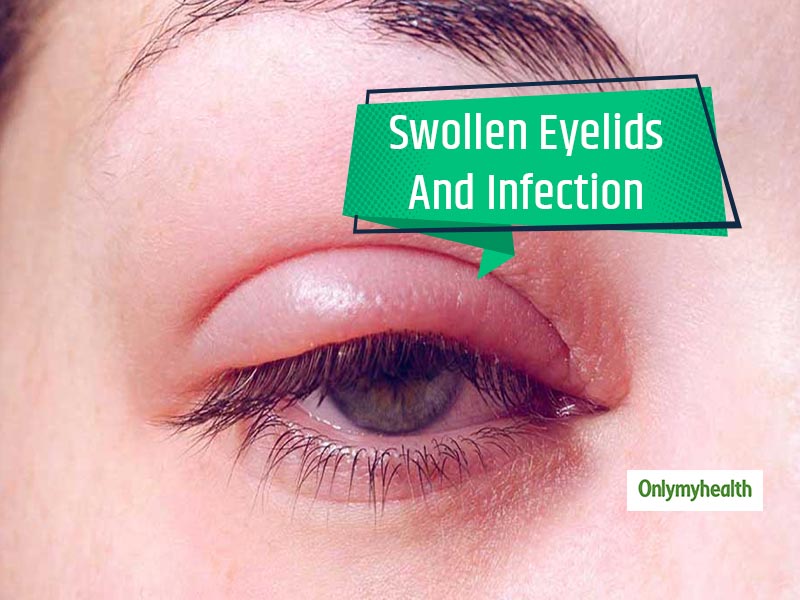
Usually all we do is look at the mirror and decide to avoid it and eventually the swelling of eyelids, known as eyelid edema, also goes away as the day passes by. While in most cases, this is not something to worry about; in certain cases, it could be a sign of serious, potentially sight-threatening problems, such as orbital cellulitis, Graves' disease and ocular herpes, according to Dr Shashidhar V S, Consultant-Oculoplasty in Sankara Eye Hospital. Dr Shashidhar advises to not ignore the occurrence of swollen eyes and visit an ocuplastic surgeon to ensure there is no serious infection.
Table of Content:-

People often use the terms “swollen eyes” and “puffy eyes” interchangeably. But what needs to be understood is that “puffy eyes” is referred to the appearance caused by swelling of eyelids while “swollen eyes” refer to a burning or gritty feeling in the eyes due to allergy, infection or an injury. Dr Shashidhar points out the causes, symptoms, precautions and cure for swollen eyes:
Causes
Swelling of the eyes, which usually goes away by itself within 24 hours, is caused due to several reasons which primarily include the presence of excess fluid (edema) in the eyelids. It can also result from:
- Allergies (with products that come in contact with eyes like makeup or contact lens solution)
- Injury around the eye area
- Bug bite
- Stye - swollen, reddish bump on the edge of an eyelid - an infection of a gland in the eyelid
- Conjunctivitis, also known as “pink eye”
- Malfunctioning of oil glands in eyelids
- Orbital and Periorbital cellulitis
- Fat prolapse
- Forceful or prolonged crying
Other than these, certain medical conditions can also be the reason for swollen eyes. For instance, the Grave’s Disease which is an autoimmune disorder the affects the thyroid glands.

Also Read: Lazy Eye: Know Everything About This Eye Disorder Common In Kids
Symptoms
- Crusted or puffy eyes when you get up in the morning
- Burning or gritty feeling in eyes
- Blurred/impaired vision
- Itchy and greasy eyelids
- Red eyes and inflammation of the conjunctiva
- Sensitivity to bright light
- Dry eye syndrome
When to see a doctor
According to Dr Shashidhar, a doctor’s advise is warranted if swelling of eyes is accompanied with:
- Pain in eyelids
- Blurred or impaired vision
- Itchy or scratchy sensation
- Red eyes and inflammation
- Feeling of a piece of sand in the eyes
If the swelling persists for a few days despite warm compresses and proper sleep, it is advisable to visit an oculoplastic surgeon. Depending on the cause, the doctor may advise you antibiotic eye drops, ointment or cream for a few days or 4-6 weeks. Dr Shashidhar says that while eye cancer is rare but swollen eyes is a symptom of that which is actually the pressure from the cancer. Reaching out for immediate treatment to such a problem will not only lead to accurate diagnosis but also early relief.

What you can do at home (Home Remedies For Swollen Eyelids)
Treatment of swollen eyelids depends on the underlying cause. If it is caused by fluid retention, allergy or lack of sleep, then a host of home remedies can turn fruitful:
- Washing eyes with saline water in case of discharge
- Cool compressing of eyes with a cold washcloth
- Avoid using contact lenses for some time
- Use of prescribed eye drop in case of allergy
- Sleeping with elevated head to reduce fluid retention
Also Read: Protect Your Eyes from Eye Herpes
Prevention

- If swollen eyelids and other aforementioned symptoms are a regular occurrence, it is advisable to get yourself tested for allergies. Once you know the exact cause, the allergens can be avoided.
- Choose makeup and other beauty products wisely, making sure they are hypoallergenic and fragrance-free.
- Those who wear contact lenses need to practice proper hygiene techniques to minimise risk of eye infection or irritation.
Read more articles on Other Diseases
How we keep this article up to date:
We work with experts and keep a close eye on the latest in health and wellness. Whenever there is a new research or helpful information, we update our articles with accurate and useful advice.
Current Version
